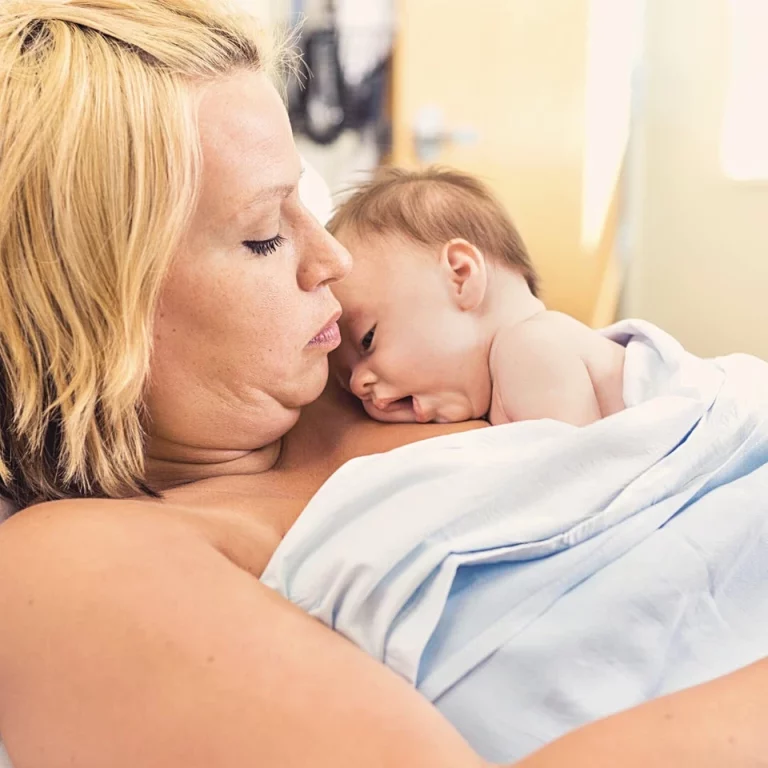Can You Get Pregnant While Breastfeeding?
Can you get pregnant while breastfeeding? The short answer is yes, it is very possible to become pregnant while breastfeeding your new baby. Let’s take a look at why.
Why Is It Possible To Conceive While Breastfeeding?
Breastfeeding does delay the return of your menstrual cycle, which means that ovulation is less likely to occur. However, it is still possible to ovulate and become pregnant while breastfeeding.
Although the chances of a new pregnancy are lower than if you were not breastfeeding, many women have had unplanned pregnancies because they did not use a form of birth control while breastfeeding.
Do Not Use Breastfeeding As Birth Control Method
It is important to note that breastfeeding should not be used as a form of birth control. While breastfeeding can provide some protection against pregnancy, it is not a reliable form of contraception. If you do not want to become pregnant, it is important to use a reliable method of contraception as soon as you start having sex again after giving birth. Additionally, getting pregnant too quickly after giving birth can affect you having a healthy pregnancy as a 12 month interval is usually recommended between birth and pregnancy.
There are many factors that can affect your fertility while breastfeeding, including how often you breastfeed, whether your baby is exclusively breastfed, and how old your baby is. In this article, we will explore the relationship between breastfeeding and fertility, as well as the factors that can affect your chances of getting pregnant while breastfeeding.
Breastfeeding And Fertility
There are some factors that affect fertility while breastfeeding. In this section, we will go over the lactational amenorrhea method, factors that affect fertility while breastfeeding, how soon you can get pregnant after giving birth while breastfeeding, and whether you can get pregnant while on your period and breastfeeding.
How Breastfeeding Affects Fertility
When you breastfeed (or when you use a breast pump), your body produces prolactin, a hormone that stimulates milk production and suppresses ovulation. This is known as lactational amenorrhea, which is a natural form of birth control. However, the effectiveness of lactational amenorrhea as a contraceptive method depends on several factors, including how often you breastfeed, how long you breastfeed, and whether your baby is exclusively breastfed.
Lactation Amenorrhea Method (LAM)
The lactation amenorrhea method of birth control is a natural form of birth control that relies on breastfeeding to prevent pregnancy. To use the LAM method effectively, you must breastfeed your baby exclusively (no formula or solid foods) for the first six months of life, breastfeed on demand day and night, and have not yet resumed your menstrual periods. Exclusive breastfeeding means the baby is only getting breast milk as their form of nutrition (no formula and no solids).
When To Not Use The Lactation Amenorrhea Method
If you are pumping milk, if you’re baby is older than 6 months old, or if your periods have returned, you should not use the lactational amenorrhea method of birth control. It will not work effectively, and your chances of conception are higher. If your periods have not returned, your baby is younger than 6 months and the baby is only breastfed (does not get a bottle) and is fed on demand, then LAM can be up to 98% effective in preventing pregnancy. However, it is important to note that this method does not provide 100% protection from pregnancy. Becoming pregnant within 6 months of a previous pregnancy can be dangerous for both mother and baby.
How Soon Can You Get Pregnant After Giving Birth While Breastfeeding
The American College of Obstetrics and Gynecology strongly advises against becoming pregnant again within 6 months of giving birth. This short interval is associated with significant risks. Ideally, there should be at least an 18 month gap or more between giving birth. Interdelivery (from one delivery to the next) time periods of less than 18 months have been associated with increased risk of uterine rupture among pregnant women who do a trial of labor after cesarean section. There is also a higher chance of preterm labor in the next pregnancy.
It is possible to ovulate and become pregnant as soon as three weeks after giving birth, even while breastfeeding. However, the likelihood of getting pregnant while breastfeeding decreases as the duration and frequency of breastfeeding increase. If you are not ready to get pregnant again, it is important to use a reliable form of birth control.
Can You Get Pregnant While On Your Period And Breastfeeding?
Because a woman’s period happens several days after ovulation, it is unlikely to get pregnant on your menstrual period. However, it is still possible to get pregnant while on your period and breastfeeding! After pregnancy, you may have times when you bleed which are not actually your period and you could mistake this bleeding to be your regular menstrual cycle. Having irregular cycles can make timing sex to avoid a pregnancy challenging. Additionally, when you ovulate can also change, and it could move closer to the time of your period. Sperm can stay active for up to five days and although the chances are small, it is still possible. And, while breastfeeding can suppress ovulation, it is not a reliable form of birth control. It is very important to use a reliable form of birth control if you are not ready to get pregnant again.
Related: Postpartum Rib Pain
Remember that ovulation (release of the egg) happens about one to two weeks before the return of your period. This means that before your period returns, you will ovulate. The time between the first ovulation after a pregnancy and the first postpartum period is usually the riskiest time to get pregnant because breastfeeding women do not realize that their period is about to come back.
Contraception Options While Breastfeeding
There are many birth control options that you can use in your several months postpartum. The kind of contraception that will be the best choice for you will depend on your personal needs for family planning.
Barrier Methods
Barrier methods of contraception are a good option for breastfeeding mothers because they do not contain hormones that can affect milk production. These methods work by physically blocking sperm from reaching the egg. These include male and female condoms, a cervical cap, and a diaphragm.
Hormonal Contraceptives
Hormonal methods of contraception can be used while breastfeeding, but it is important to choose a method that contains only progestin, as estrogen can affect milk supply. Many birth control pills have both of these hormones so be sure to seek medical advice when deciding what will be an effective form of birth control for you that will not affect breast milk production. Hormonal contraceptives work by suppressing ovulation and thickening cervical mucus to prevent sperm from reaching the egg. The progestin-only pill (mini-pill), Depo-Provera injection, or the Implant (Nexplanon) can be used.
Long-Acting Reversible Contraceptives
Long-acting reversible contraception (LARC) refers to a group of highly effective and long-lasting birth control methods that are reversible and do not require daily or frequent use. These methods include IUDs (intrauterine device) and implants.
Intrauterine devices, abbreviated as IUDs, are small, T-shaped devices that are inserted into the uterus by a healthcare provider. There are two types of IUDs-copper and hormonal-and they can provide protection from pregnancy for 3 to 10 years depending on the type.
Birth control implants are also LARCs. They are small, flexible rods that are inserted under the skin of the upper arm by a doctor. The implant releases a hormone that prevents pregnancy and can provide protection for up to 3 years.
LARC methods are considered to be some of the most effective forms of contraception available, with a failure rate of less than 1%. They are also convenient, as they do not require daily or frequent attention, and are easily reversible when a woman is ready to become pregnant.
Pregnancy While Breastfeeding
It is possible to get pregnant while breastfeeding, even if you have not yet had a period. Some women may experience signs of pregnancy while breastfeeding, such as nausea, fatigue, and breast tenderness. However, these symptoms can also be caused by breastfeeding itself, so it can be difficult to tell if you are pregnant without taking a pregnancy test. If you suspect that you may be pregnant while breastfeeding, it is important to take a pregnancy test to confirm. This will help you begin prenatal care and ensure that you and your baby are healthy.
Can You Get Pregnant While Breastfeeding: Summary
While breastfeeding can delay the return of your menstrual cycle and ovulation, it is still possible to get pregnant while breastfeeding. The likelihood of getting pregnant while breastfeeding depends on various factors such as the frequency and intensity of breastfeeding, the age of the mother, and the use of other forms of birth control.
It is important to note that relying solely on breastfeeding as a form of birth control is not a reliable method. If you do not want to become pregnant, it is recommended to use additional forms of birth control.
If you are breastfeeding and planning to become pregnant, it is important to consult with your healthcare provider to ensure that you are getting enough nutrients for both yourself and your baby. Additionally, your healthcare provider can provide guidance on how to safely continue breastfeeding while pregnant.
Overall, it is important to be aware of the potential for pregnancy while breastfeeding and a good idea to have a birth control method that works for you and your partner.
We discuss products we think are useful to people. If you buy something through our links, we may earn a commission. Remember to check with your personal physician to see if a product recommended is right for you.








